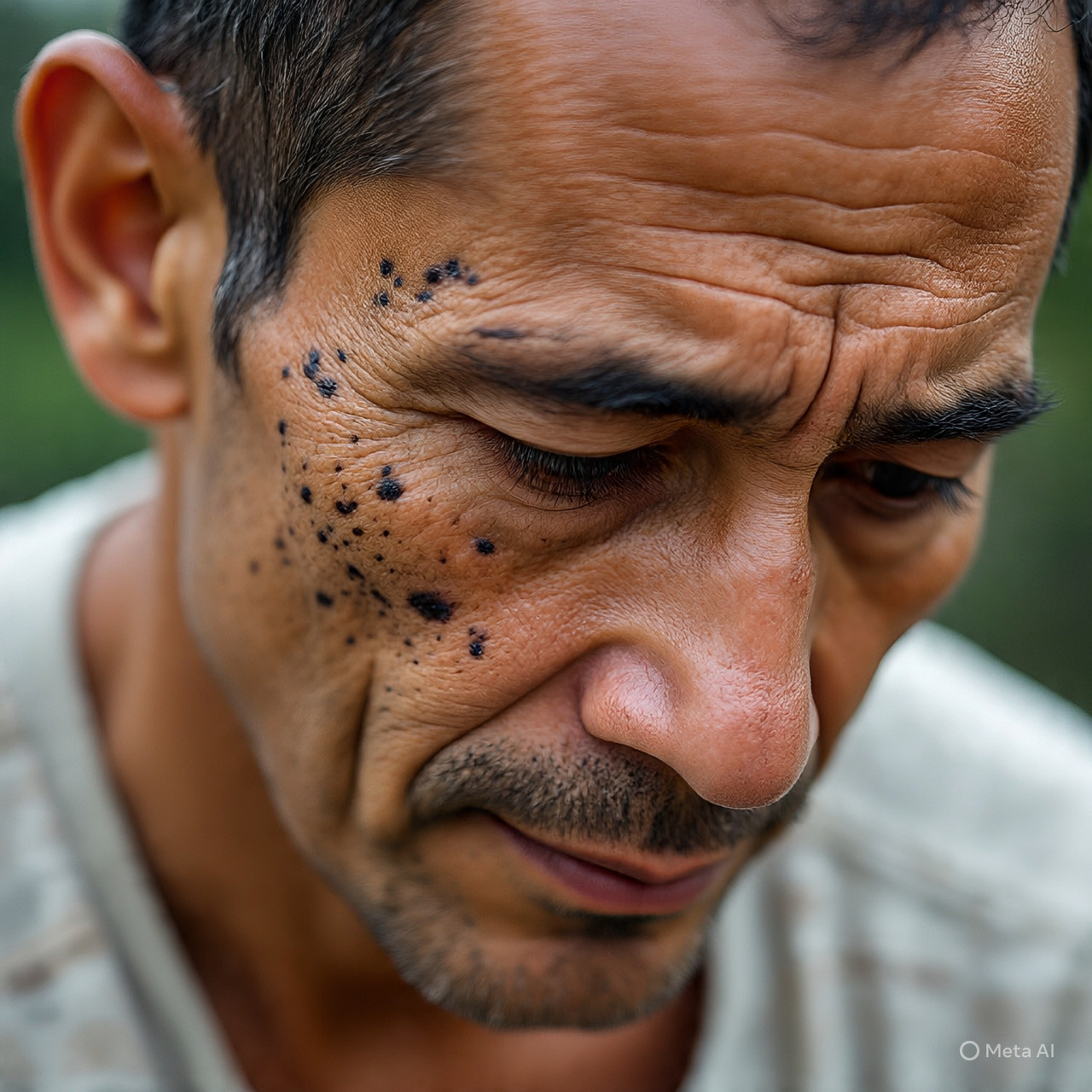Dark spots are a common skin concern that affect people of all ages and skin types. They can appear gradually and often leave the complexion looking uneven or dull. While dark spots are usually harmless, many people seek ways to reduce their appearance for a clearer and more even skin tone. With the right approach, including effective dark spots on skin treatment and the use of suitable acne products for sensitive skin, it is possible to manage this condition safely and effectively.
Understanding Dark Spots
Dark spots, also known as hyperpigmentation, occur when certain areas of the skin produce more melanin than usual. Melanin is the pigment that gives skin, hair, and eyes their colour. When melanin production increases in certain patches, it leads to darker spots that contrast with the surrounding skin.
Common Signs of Dark Spots
What Causes Dark Spots?
There are several factors that can contribute to the development of dark spots:
Sun Exposure
Excessive exposure to ultraviolet (UV) rays is one of the most common causes. The skin produces more melanin to protect itself from damage, often leading to sunspots or age spots.
Acne and Skin Inflammation
When acne heals, it can leave behind post-inflammatory hyperpigmentation (PIH). These dark marks often appear in people with sensitive or acne-prone skin, highlighting the importance of choosing acne products for sensitive skin that do not cause irritation.
Hormonal Changes
Conditions such as melasma can occur due to hormonal fluctuations. This is particularly common during pregnancy, when using contraceptives, or in people with hormonal imbalances.
Ageing
As skin ages, melanin production becomes more uneven, leading to age spots. These are typically harmless but can become more noticeable over time.
Medications and Health Conditions
Certain medications or underlying health conditions can cause pigmentation changes, making skin more prone to dark spots.
Dark Spots on Skin Treatment
Treatment for dark spots depends on their cause and severity. The goal is to lighten the affected areas and even out the skin tone while protecting the skin from further pigmentation.
Topical Treatments
Topical creams and serums are often the first choice. Ingredients to look for include:
Professional Treatments
For stubborn dark spots, professional treatments can provide faster and more noticeable results:
These treatments should always be performed by qualified professionals to ensure safety and effectiveness.
Choosing the Right Acne Products for Sensitive Skin
Since acne is a common cause of dark spots, preventing breakouts is an important part of treatment. However, people with sensitive skin need to be careful when selecting products to avoid irritation that could worsen pigmentation.
Key Considerations
By preventing acne and treating it with gentle products, you reduce the risk of developing dark marks afterwards.
Lifestyle Habits That Support Treatment
Skincare treatments are most effective when combined with healthy lifestyle habits.
Sun Protection
Sunscreen is one of the most important tools in preventing and treating dark spots. Daily use of a broad-spectrum SPF helps stop spots from worsening and protects the skin from further damage.
Healthy Diet
A diet rich in antioxidants, vitamins, and minerals supports overall skin health. Foods such as berries, leafy greens, and fish with omega-3 fatty acids can promote a clearer complexion.
Hydration and Sleep
Drinking enough water and getting adequate rest helps the skin repair itself naturally, supporting a more even tone.
Stress Management
Stress can contribute to hormonal changes and worsen acne, which in turn may cause more pigmentation. Techniques such as mindfulness, yoga, or regular exercise can help manage stress levels.
When to Seek Professional Help
While many dark spots can be managed with home treatments and over-the-counter products, some may require professional assessment. If spots appear suddenly, change in shape, or are accompanied by other symptoms, it is important to seek medical advice. Dermatologists can provide tailored treatment plans and rule out any underlying conditions.
Final Thoughts
Dark spots are a common skin concern, but with the right care and treatment, they can be managed effectively. Understanding the causes—whether sun exposure, acne, or hormonal changes—allows you to choose appropriate treatments that target pigmentation safely. Combining dark spots on skin treatment with acne products for sensitive skincan not only reduce existing spots but also help prevent new ones from forming. By taking care of your skin daily and seeking professional advice when needed, you can achieve a clearer, more even complexion over time.
